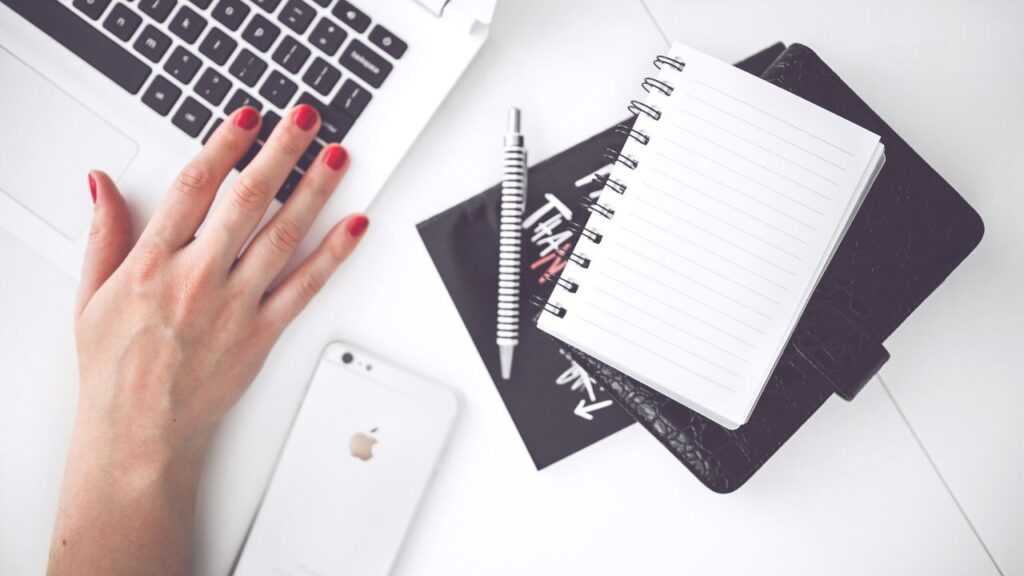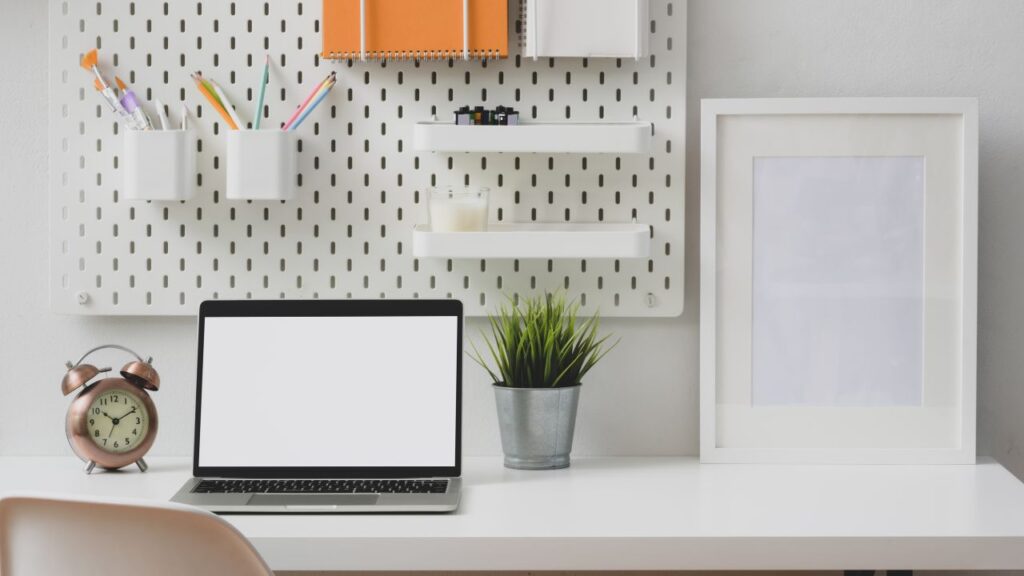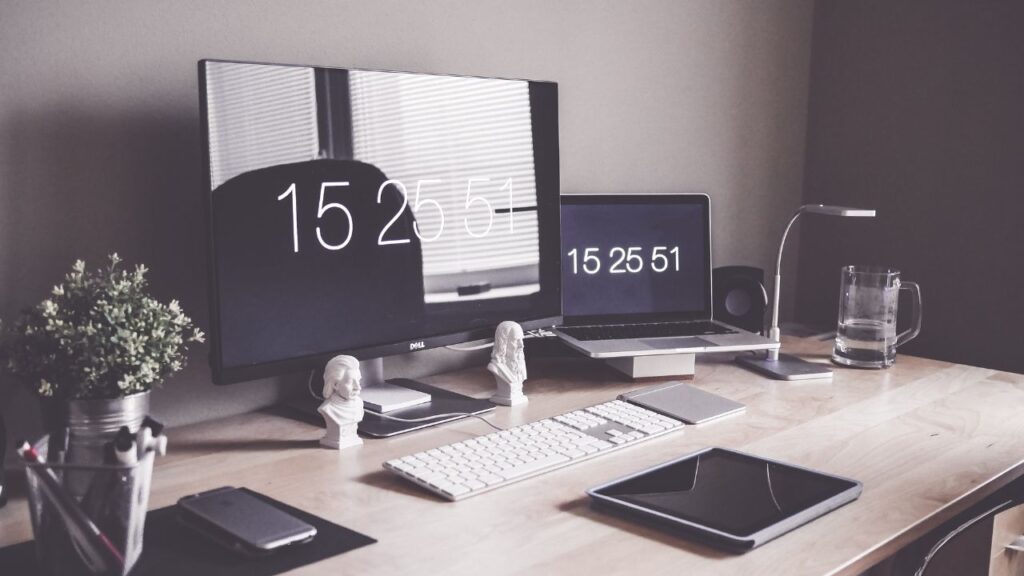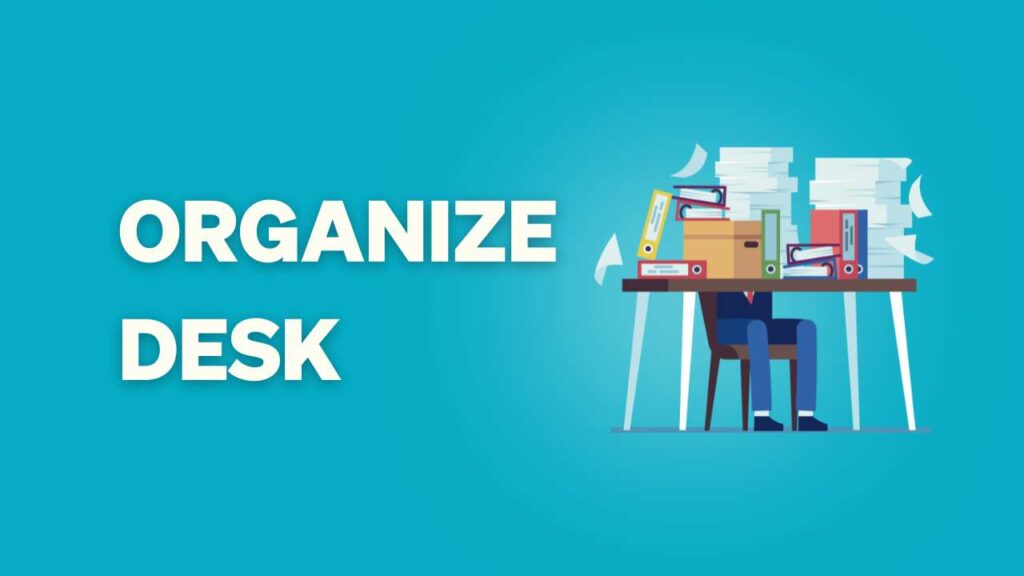How to Organize Desk for Productivity Student Effectively?
To boost productivity, students should keep only essential items on their desk and use organizational tools. Regular decluttering and a consistent setup enhance focus and efficiency.
Organizing a desk effectively can have a tremendous impact on a student’s productivity and focus.
A clutter-free workspace minimizes distractions and aids in finding necessary materials quickly, saving time and reducing stress.
Desks with a well-thought-out layout promote a structured study environment, encouraging better study habits and time management.
By carefully arranging their desk, students can create a conducive learning atmosphere that facilitates easier information retention and a more enjoyable study experience.
A tidy desk also reflects discipline and a professional approach to tasks, which are valuable skills both in academia and in future professional settings.
Implementing these simple organization strategies can transform a chaotic surface into a powerful productivity tool.

The Impact Of A Tidy Desk On Student Productivity
For students, a clean desk is not just about neatness.
It’s about setting the stage for success.
A tidy workspace can boost concentration and learning.
Let’s explore how orderliness directly affects student productivity.
Connection Between Cleanliness And Focus
A messy desk can be a minefield for distractions.
Imagine trying to focus on studying, but everywhere you look there’s clutter vying for your attention.
It’s easy to lose track of your study goals. On the flip side, a clean desk presents a clear space for your mind.

This freedom from distraction sharpens your focus and enhances memory retention.
An organized space means organized thoughts, paving the way for effective learning and productivity.
- Decluttered space = decluttered mind
- Easy access to study materials keeps attention on task
- Improved concentration leads to better grades
Reducing Stress With Desk Organization

Clutter is not just a physical problem; it’s an emotional one too.
A chaotic desk can cause feelings of overwhelm and anxiety, making it hard to start a study session.
By organizing your workspace, you ease this mental burden. A well-ordered desk can decrease stress and promote a positive mindset.
This relaxed state is essential for productive studying. So, keep your desk tidy to keep stress at bay and your mind sharp.
- Sort and organize materials
- Label and categorize for quick retrieval
- Establish a cleaning routine for lasting order
Essential Desk Organization Tools
Organizing your desk sets the stage for improved productivity, especially for students who juggle assignments, projects, and study materials.
The right desk organization tools can help reduce clutter and make it easier to find what you need, when you need it.
Let’s explore some essential items that every student should consider integrating into their workspace.
Desk Organizers: What To Look For
Selecting a desk organizer is more than just choosing a stylish accessory.
Focus on versatility and function. Look for options with adjustable compartments for different supplies.
- Size and layout: Ensure it fits easily on your desk.
- Durability: Choose materials that can withstand daily use.
- Easy access: Prioritize organizers that make it simple to grab what you need.
Must-have Accessories For Every Student’s Desk
Equip your study area with these must-have desk accessories for a streamlined workflow.
| Accessory | Benefit |
|---|---|
| Pen Holder | Keeps writing tools in one place. |
| Document Tray | Sorts assignments and notes by priority. |
| Cable Clips | Manages cords to prevent tangles. |
| Sticky Notes | Allows quick reminders and page marking. |
| Book Stand | Holds textbooks upright for easy reading. |
Main Areas Of Your Desk To Keep Organized
Organizing your desk is like setting a stage for your productivity performance.
You are the star, and your desk is the platform where the show happens every day.

Keep the main areas of your desk organized to ensure a smooth performance.
This is not just about cleaning; it’s about creating a place where your mind can focus, and ideas can flow.
Workspace Zone Management
Your workspace zone is where the magic happens. It’s where you study, think, create, and achieve.
A cluttered space can lead to a cluttered mind. Divide your desk into zones to manage tasks effectively.
- Computer Zone: Keep your laptop or monitor, mouse, and keyboard here.
- Writing Zone: Have a clear area for taking notes and doodling ideas.
- Reference Zone: Store important documents and textbooks within easy reach.
Keeping Your Study Materials Accessible
Let’s talk about your study materials. You need them close but out of the way when not in use. Accessible study materials save time and reduce frustration.
| Material | Organizing Tip |
|---|---|
| Books | Use a small bookshelf or vertical organizer on your desk. |
| Papers | Keep in folders or document holders, labeled by subject. |
| Stationery | Store in a pencil cup or desk drawer organizer. |
Decluttering Your Desk: A Step-by-step Guide
Clean desks create clear minds. This mantra is true for students everywhere.
A messy desk is a maze. It wastes time. It frustrates and distracts.
But fear not! The journey to a clutter-free and productive space starts here.
Follow these effective steps and transform chaos into order.
Sorting Out Unnecessary Items
Before organizing, we must toss out the old. This means detoxing the desk of all that’s not needed. Follow this guide:
- Empty every drawer. See everything you have.
- Divide items into categories such as school supplies, documents, and personal goods.
- Decide what’s useful. Ask, “Have I used this in the past month?”
- Be ruthless. If it’s not needed, it’s not staying.
- Recycle, donate, or toss what doesn’t make the cut.
Creating A System That Works For You
Every student is unique. So is the way they organize. Let’s design a system to enhance focus and efficiency.
Think functional. Group related items together. Make zones for different tasks.
- Study Zone: Keep only pencils, pens, highlighters, and notebooks.
- Computer Zone: A place for your laptop, mouse, and charger.
- Reference Zone: Stack textbooks, reference books, and important papers.
Use containers and organizers. Assign everything a home. Be consistent in placing items back.
Maintain this system daily. Five minutes at the end of each day keeps the clutter away.
Maintaining An Organized Desk Over Time

An organized desk is essential for productivity.
For students, it can make the difference between a successful study session and an unproductive one.
The challenge is keeping that desk organized day in and day out.
With consistent routines and a few strategic moves each week, this daunting task becomes a manageable habit.
Let’s dive into the details to ensure your workspace remains a productivity powerhouse.
Daily Routines To Keep Cleanliness
Start and end your day with a clean desk. Here’s a simple checklist to follow:
- File papers immediately after use.
- Wipe down the surface to keep it dust-free.
- Store all writing instruments in holders.
| Task | Frequency |
|---|---|
| Organize desk items | Daily |
| Clean desk surface | Daily |
| Sanitize electronics | As needed |
Make it a habit to tidy up before you leave. This ensures a welcoming space for the next study session.
Weekly Desk Refresh Tips
Set aside time each week for a deeper clean. These steps will rejuvenate your study area:
- Reevaluate your organizational system.
- Discard unused or old items.
- Audit your supplies and restock as necessary.
- Adjust your layout to suit current project needs.
Balance functionality with minimalism. This approach enhances efficiency and keeps distractions at bay.
Organizational Hacks For Small Desks

Students often struggle with keeping their desks tidy and finding space for all their items.
A cluttered workspace can hinder productivity. But don’t worry! With a few organizational hacks, even the smallest of desks can turn into a hub of efficiency.
Let’s look at some clever ways to maximize your desk area and boost your study sessions.
Vertical Space Usage
Don’t let your desk surface limit you. Look up and think vertical! Make your walls work harder by installing shelves or pegboards.
This approach frees up valuable desk space and keeps essential supplies within arm’s reach. Consider the following:
- Wall-Mounted Shelves: Perfect for books and reference materials.
- Magnetic Boards: Ideal for to-do lists and reminders.
- Hanging Organizers: Keep those stationery items and gadgets tidy.
Multipurpose Items For Space Saving
Choose items that serve more than one function. They save space and money.
A lamp with a built-in organizer or a desk with extra drawers underneath can make a big difference. Look for items like:
| Item | Function |
|---|---|
| Desk Organizer with USB Ports | Charging Station + Storage |
| Ottoman with Storage | Seating + Hidden Compartment |
| Foldable Desk | Workspace + Easy Storage |
By using these space-saving items, you can keep your small desk organized and functional.
Always aim for products that combine practicality with a small footprint.
Digital Organization For Enhanced Productivity
A well-organized digital space can skyrocket a student’s productivity. Like a clean physical desk, a tidied digital environment helps focus and efficiency.
Let’s dive into organizing your digital realms for maximum study success.
Tidy Digital Desktop Equals Tidy Physical Desktop
Declutter your digital workspace to mirror a neat physical desk. Start with your computer’s desktop.
Regularly clear away unused icons and organize necessary ones into folders.
Your wallpaper could serve as a calm backdrop, helping you stay stress-free and concentrated on tasks.
Organizing Digital Files And Study Resources
Create an efficient filing system for all your study materials. Arrange files in clearly labeled folders.
Separate them by subject, project, or type. Use the following points to nail this system:
- Create a hierarchy – Major folders for subjects, subdivided by topics or modules.
- Name files consistently – Include dates, subject names, and types of content for easy retrieval.
- Back-up important files – Use cloud storage services like Google Drive or Dropbox for safety.
- Use bookmarking tools – Keep frequently accessed resources just a click away.
Remember, digital neatness leads to smoother study sessions and better outcomes.
Frequently Asked Questions On How To Organize Desk For Productivity Student
What Are Top Desk Organization Tips For Students?
Maximizing productivity starts with an orderly desk. Use desk organizers to compartmentalize supplies.
Implement a reliable filing system for your paperwork.
Keep only essential items on your desk, and designate a spot for everything. Declutter periodically.
How Can I Improve My Study Space For Productivity?
Create a distraction-free zone to enhance focus. Ensure adequate lighting, particularly from natural sources.
Invest in ergonomic furniture to support prolonged study sessions. Add plants which can improve concentration and reduce stress.
What Are The Best Storage Solutions For Student Desks?
Opt for vertical storage – like shelves or stackable trays – to save space.
Use drawer dividers to separate and organize different stationery items.
Monitor stands with storage underneath can also help in minimizing desk clutter.
Can Desk Layout Impact Student Performance?
Absolutely. The positioning of your monitor, keyboard, and stationery within reach can reduce unnecessary movement and boost efficiency.
Maintaining a clean and organized desk can also decrease stress, aiding in better academic performance.
Conclusion
Creating a desk space that boosts productivity is within your grasp. Remember, a clutter-free surface fosters focus.
Choose accessories that serve purpose and inspire. By implementing the tips shared, students can set the stage for academic success. Accept organization—your grades will thank you.


